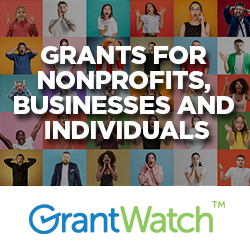Grants to USA Small Businesses for Research Related to the Commercialization of Technologies
Geographic Focus
USA: Alabama; Alaska; Arizona; Arkansas; California; Colorado; Connecticut; Delaware; Florida; Georgia; Hawaii; Idaho; Illinois; Indiana; Iowa; Kansas; Kentucky; Louisiana; Maine; Maryland; Massachusetts; Michigan; Minnesota; Mississippi; Missouri; Montana; Nebraska; Nevada; New Hampshire; New Jersey; New Mexico; New York City; New York; North Carolina; North Dakota; Ohio; Oklahoma; Oregon; Pennsylvania; Rhode Island; South Carolina; South Dakota; Tennessee; Texas; Utah; Vermont; Virginia; Washington, DC; Washington; West Virginia; Wisconsin; Wyoming
USA Territories: American Samoa (USA); Guam (USA); Puerto Rico (USA); Virgin Islands (USA); Northern Mariana Islands (USA);
USA Compact Free Associations: The Federated States of Micronesia (USA) Marshall Islands (USA) Republic of Palau (USA)
USA Territories: American Samoa (USA); Guam (USA); Puerto Rico (USA); Virgin Islands (USA); Northern Mariana Islands (USA);
USA Compact Free Associations: The Federated States of Micronesia (USA) Marshall Islands (USA) Republic of Palau (USA)
Important Dates
Deadline: 07/02/25 5:00 PM Submitter's Local Time
Short Grant Description
Grants to USA and territories businesses for collaborative research to establish the feasibility of commercializing technologies. Applicants must submit a letter of intent and complete required registrations prior to submitting an application. Applicants must work coll...
View Full Grant Details
Subscribe to become a MemberPlus+
Subscribe to GrantWatch
| Features | MemberPlus+ | |
| 1. | Thousands of Grants and 990 Reports |  |
| 2. | Complete Grant Descriptions and Ability to Save as a PDF |  |
| 3. | Grant Eligibility with Direct Links to RFPs to Apply |  |
| 4. | Live Customer Support |  |
| 5. | Email Updates of the Latest Grants |  |
| 6. | Real Time Personalized Grant Alerts |  |
| 7. | Affordable Pricing Options |  |
| 8. | Multi-User and Library Licenses |  |
| 9. | Keep Track of Your Grant View History |  |
| 10. | Hide Ineligible Grants |  |
| 11. | Personalized Grant Calendar with Submission Tracker |  |
| 12. | Boolean Keyword Search |  |
| 13. | SMART Advanced Grant Search |  |
| 14. | Save Your SMART Grant Search Filters |  |
| 15. | Foundation Search and IRS 990 Report Finder |  |
| 16. | Grant Recipient Profiles with Reverse Search |  |
| 17. | Save Foundations and Recipient Search Filters |  |
| 18. | GrantNews Newsletter |  |
| 19. | Grant Resources and Tutorial Videos |  |
| 20. | Priority Purchase of The Queen of Grants by Libby Hikind |  |
| PRICING & PLANS | ||


